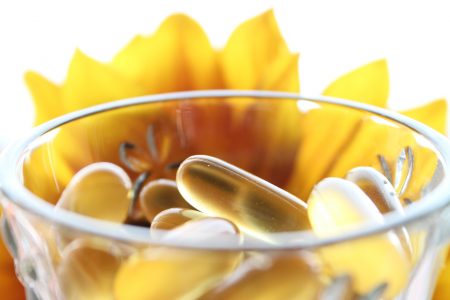What Nutrition Teaches you about Recovery from Alcohol Use Disorder And 5 Vitamin Supplements that can Ease Withdrawal
“Bring the body. The mind will follow.” This saying is often bantered about AA meetings and recovery groups around the country. There is a greater meaning behind these words than simply carrying one’s body to a meeting or a group. Alcohol abuse ravages the body and the organ systems. When someone gets sober, straightening out physical imbalances can help with cravings and make recovery seem more doable. Vitamin and mineral supplements are a huge part in promoting wellness in sobriety.
Zinc
Alcoholics are usually found to be deficit in Zinc, an essential mineral. Zinc is important for organs. It aids in liver function and promotes healthy immunity. Appropriate levels of zinc are also found to improve brain function. Given the nature in which alcohol affects the liver and brain adversely, this is one very important mineral to add to a diet upon beginning the journey into sobriety.
Vitamin C
Because of the lifestyles of alcoholics, with poor nutritional habits accompanying substance use, vitamin C is a good addition to the diet of a recovering alcohol abuser. Vitamin C speeds the detoxification process, and actually aids in restoring the liver. In the early days of Alcoholics Anonymous, before detox centers were readily available, orange juice was regularly used to help fight cravings.
Vitamin B Complex

Taking vitamin supplements can improve your physical and mental health.
Many people begin abusing alcohol in an attempt to self-medicate symptoms of depression. Given that alcohol itself is a central nervous system depressant, this is not the best form of treatment. Studies particularly note alcoholics are deficit in Thiamine. This type of Vitamin B helps break down carbohydrates, promoting functioning at the cellular level. Deficits in Thiamine are known to cause muscular and brain dysfunction. Adding Vitamin B to a newly sober person’s diet can help with:
- Craving alcohol
- Improve brain function
- Depression symptoms
- Paranoia
- Anxiety
- Heart heath
- Fatigue
Potassium
Poor nutrition combined with excess alcohol, salt and caffeine can create potassium deficits. The effects of low potassium can be staggering. Feelings of fatigue, nausea, weakness and muscle cramps are all symptoms of a lack of sufficient potassium levels. It is important to revitalize potassium levels as symptoms of this nature could lead quickly to relapse for someone trying to stop drinking.
Iron
Drinkers are often ingesting foods of poor nutritional value, or not eating at all. Meat, eggs, fish and leafy greens are all foods that are rich in iron. Without these vital additions to a diet, alcoholics develop anemia. Serious complications can arise from iron deficiencies in alcohol abusers.
- Fatigue
- Headaches
- Memory problems
- Shortness of breath
- Bleeding or clotting problems
Supplementing the diet with iron is critical for people who drank heavily prior to embarking upon the sobriety path.
Other Deficit Vitamins and Minerals
For serious drinkers, nutrition has often been a long-neglected area of focus. Other vitamin deficits may also exist. Calcium, magnesium, chromium and selenium are generally other mineral deficits found in those with alcohol use disorder. When beginning in recovery, it is important to see a physician and have lab work done to assess specific deficits in nutrition.
Wellness Approach
Seeking appropriate medical advice and determining specific nutritional deficits is important for newly recovering people. Usually, a multivitamin is a great place to start in the quest back to physical health. Feeling physically well can help fight cravings and improve mental and emotional wellness, as well. For those seeking recovery from alcohol use disorder, a balanced approach to health can offer greater success. Doctors and specialists are available to consult best practices in this new, hopeful venture.
Resources
Dick, D. & Agrawal, A. (2008). The genetics of alcohol and other drug dependence. Alcohol Research and Health. 31(2): 111-118. Retrieved on January 4, 2017 from: https://pubs.niaaa.nih.gov/publications/arh312/111-118.pdf
NIH (2005). Other substance abuse. The National Institute on Alcohol Abuse and Alcoholism. Retrieved on January 4, 2017 from: https://www.niaaa.nih.gov/alcohol-health/special-populations-co-occurring-disorders/other-substance-abuse
Martin, P., Singleton, C. & Hiller-Sturmhofel, S. (2004). The role of thiamine deficiency in alcoholic brain disease. National Institute on Alcohol Abuse and Alcoholism. Retrieved on January 16, 2017 from: https://pubs.niaaa.nih.gov/publications/arh27-2/134-142.htm
Miller, R. (2010). Nutrition in addiction recovery. Many Hands Sustainability Center. Retrieved on January 16, 2017 from: http://mhof.net/sites/default/files/Addiction%20and%20Recovery%20Report.pdf




